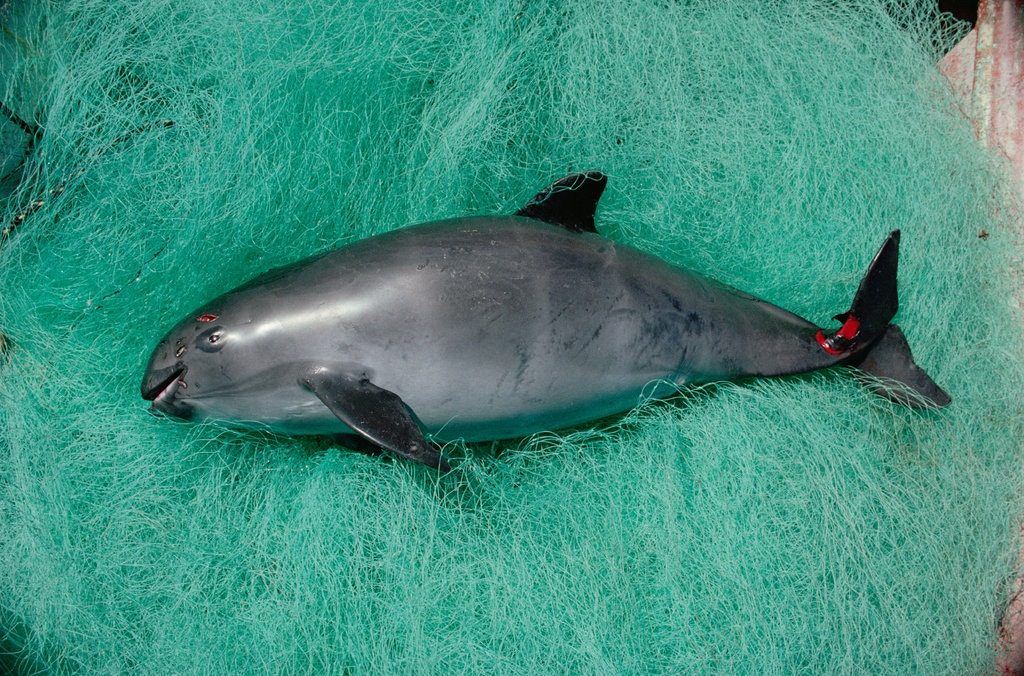
Watching Richard Ladkani’s Sea of Shadows for New Scientist, 2 October 2019
This is the story of the world’s smallest whale, the vaquita, reduced in number to fewer than 30 individuals, and hiding out in the extreme south-western corner of its territory in the Sea of Cortez. It is not a story that will end well, though Richard Ladkani (whose 2016 Netflix documentary The Ivory Game was shortlisted for the Oscars in 2017) has made something here which is very hard to look away from.
This is not an environmental story. This is a true crime. No-one’s interested in hunting the vaquita. The similarly sized Totoaba fish, which shares the vaquita’s waters, is another matter. It’s called the cocaine of the sea — a nickname that makes no sense whatsoever until you learn that the Mexican drug cartels have moved into the totoaba business to satisfy demand from the Chinese luxury market. (It’s the usual film-flam: the fish’s swim bladders are supposed to possess rare medical properties. )
Illegal gill nets that catch the totoaba — itself a rapidly declining population — also catch and kill vaquitas. The government talks a good environmental game but has let the problem get out of hand. Law-abiding fishing communities are ruined by blanket fishing bans while the illegals operate with near-impunity. Late on in the film, there’s some CCTV footage of a couple of soldiers having some car trouble. They ask for help from a passing motorist. Who shoots one of the soldiers dead. Bam. Just like that. And drives away. Meet Oscar Parra, the tortoaba padron of Santa Clara. (I said you couldn’t look away; I didn’t say you wouldn’t want to.)
Things are so bad, a scheme is dreamt up to remove the remaining vaquitas from the ocean and keep them in captivity. It’s an absurdly desperate move, because virtually nothing is known about the vaquita’s disposition and habits. (Some locals believe the creature is a myth dreamt up by a hostile government to bankrupt the poor: how’s that for fake news?) Project leader Cynthia Smith explains the dilemma facing the vaquita: “possible death in our care or certain death in the ocean”. She knows what she’s doing — she a senior veterinarian for the U.S. Navy Marine Mammal Program — but no one has ever tried to capture, let alone keep, a vaquita before. This could go very wrong indeed. (And still, you cannot look away…)
Sea of Shadows won the Audience Award at the Sundance Film Festival in February this year; National Geographic snapped it up for $3million. It’s built around a collaborative investigation between Andrea Crosta, executive director and co-founder of Earth League International (the hero-detectives of The Ivory Game) and Carlos Loret de Mola, a popular correspondent and news anchor in Mexico, whose topical show Despierta reaches an international audience of 35 million people a day. Crosta and de Mola and the Sea Shepherd Conservation Society, their maritime partners in crime-prevention, are all of them expert in handling and appealing to the media. Everything about this film that might rankle the viewer is entirely deliberate — the film’s “whodunnit” structure, the way all content is crammed into a pre-storyboarded narrative, then squeezed to release a steady drip-drip-drip of pre-digested information. Sea of Shadows is pure NatGeo fodder, and if you don’t like that channel much, you won’t like this at all.
Just bear in mind, the rest of us will be perching on the edge of our sofas, in thrall to drone-heavy cinematography that owes not a little to Denis Villeneuve’s 2015 thriller Sicario, rocked by a thumping score full of dread and menace, and appalled by a story headed pell-mell for the dark.
Rare resources are doomed to extinction eventually because the rarer a resource is, the more expensive it is, and the more incentive there is to trade in it. This is why, past a certain point, rare stocks hurtle towards zero.
Can the vaquita be saved? Sea of Shadows was made in 2018 and says there are fewer than 30 vaquitas in the ocean.
Today there are fewer than 10.
